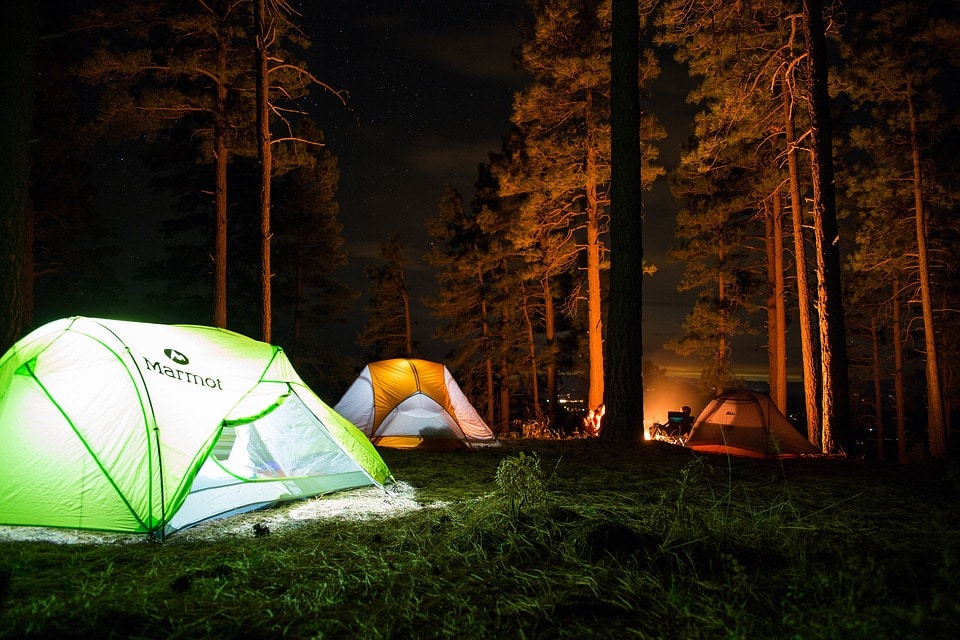Trust
I was attending a summer camp with my girlfriends. We all belonged to the same ethnic group and knew each other outside of camp. The camp was for scouts and guides, in the English tradition. It was the 1950’s in New Jersey and I was a teenager, although by today’s standards, a teenager much younger than today’s. Remember, this was fewer than ten years after the end of World War II in 1945. We were immigrants having escaped the war in Europe.
At camp, we slept on cots in Army tents with the sides rolled up during the daytime to let the breeze in. When it was afternoon rest time, it was peaceful, laying on our cots, listening to the birds, a slight breeze flowing through the tent, escaping the high humidity of New Jersey, dozing off.
In the mornings, after breakfast, we would all gather in line, in our guide or scout uniform, forming a semi-circle on the flag grounds, pledging allegiance to the American flag and listening to the daily announcements. Sometimes there was excitement as when the senior girls were reprimanded in public for sneaking out in the dark to meet up with the boys. One of my most enjoyable memories is of heading out, with a girlfriend, into the swamps with my galoshes on, to wade and explore. This was fun. I had an adventurous spirit. It was daylight and nature was safe.
One night, after everyone was settled and asleep, we were suddenly awakened by our camp counselors with whispers and flashlights beaming. Half awake, we were told we were going on a night search. There would be teams, each trying to ambush the members of the other team to get their team flags. Now clearly this was a game that someone thought would be a good idea. Certainly, the leaders who planned it thought it would be fun. For me, it was terrifying.
Totally unprepared, awakened in a rush in the middle of the night, not knowing ahead what the agenda was or having agreed to join in, I was frightened and unaware. I ran along in the dark on whatever path was open through the woods. Don’t get caught by anyone from the other team who was waiting somewhere to ambush you. I went into hiding, and I stayed hidden, waiting for some sign of safety or sanity to be restored. Even after what seemed like a long time, I did not dare come out. Who knew what new insanity was planned. Could this really be a game or was this real?
Eventually, I heard the group gathered together. They were even singing, sitting around a campfire. It must be safe now. But then I had a new concern, I was profoundly ashamed that I was different. Clearly, I was the only one who had not seen this as a game. How embarrassing! How was I to come out of hiding now? I did eventually join the group. No one pointed me out or made fun of me. As a group, we returned to camp.
The incident was never mentioned again. As girls, we didn’t even discuss this among ourselves. Maybe there were others who also had had a reaction similar to mine, but in the 1950’s no one talked about their emotions. You just acted like emotions did not exist. What were feelings anyway? After all, we had come out of a war where feelings were ignored, to survive. At that time, fear was unnamed and underlying, it was commonplace, if not constant, whether your own or that of others around you.
Today, from a spiritual perspective, I know feelings are how my body communicates with me. It’s beneficial to pay attention to what my body is telling me so that, as spirit, I can guide and care for my body. I still experience fear nowadays, especially in social situations where I care and want to be accepted, but where I might be viewed as different from others, and possibly rejected.
It’s a question of trust. Can I trust myself to know when it is safe and when it is not? Can I reassure my body that I care about it, to take control, to be in the present and create my own safety? What is from the past and what is in the present? It is a lifelong undertaking to release the past and create happiness in the here and now.



